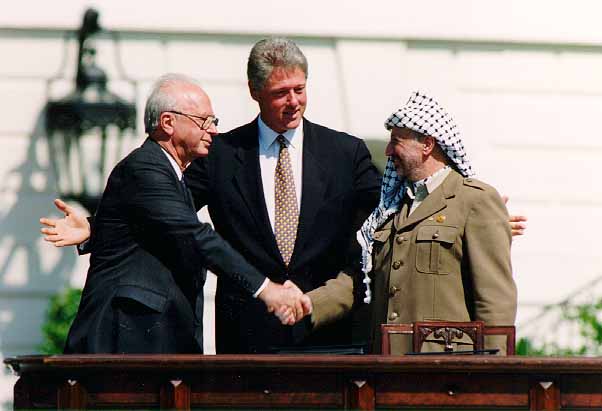
Key elements that affect whether ripeness for negotiations exists:
- Both parties see common external threats.
- Current conditions could get worse or are too bad to continue.
- Unilateral solutions will not resolve key issues.
- Pre-negotiations have already narrowed differences.
- Incentives to negotiate are available.
- The potential for pragmatic compromise is present.
- A brighter future could exist if talks and agreements ensue.
- A reliable mediator is present.
Visit https://israeled.org/themes/negotiations-with-arabs/ for more information on previous negotiations. Also see Stein and Lewis, “Making Peace Among Arabs and Israel: Lessons From Fifty Years of Negotiating Experience,” United States Institute for Peace, 1991.
Research one of the following negotiations:
- Sadat-Begin talks and Camp David Accords (1977-1979).
- Israeli-Palestinian negotiations and Oslo Accords (1992-September 1993).
- Israel-Jordan Peace Treaty (October 1994).
- Israeli-Palestinian negotiations between Ehud Barak and Yasser Arafat (July 2000).
- Israeli-Palestinian negotiations between Benjamin Netanyahu and Mahmoud Abbas (September 2010).
Using the guiding questions below, compare between past negotiations and the most recent ones to evaluate “ripeness” conditions for negotiations to take place and to be successful. Students should deduce, based on the outcomes of previous negotiation efforts, whether and to what degree they believe current talks will be productive. Assume that something less than all issues will be resolved, with some being resolved faster and implemented more quickly than others.
- Did the Israeli public support these negotiations? Could the Israeli government withstand opposition to making compromises on sensitive issues?
- Was Arab leadership willing and able to compromise and reach and enforce agreements?
- Did surrounding Arab entities (states, non‐state organizations and the Arab League) support negotiations? What were their vested interests?
- How did the historical context and conditions affect ripeness for talks?
- Were pre-negotiations successful in narrowing differences and drafting understandings?
- What role has the U.S. administration assumed during talks, and what impact did this have on negotiations?
- Were some of the negotiations successful? Did agreement ensue? Were they implemented in phases? How were the outcomes monitored?
